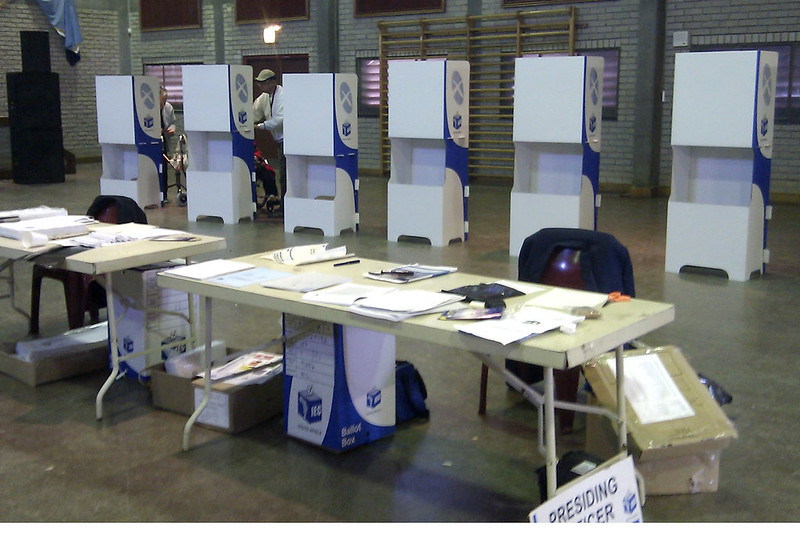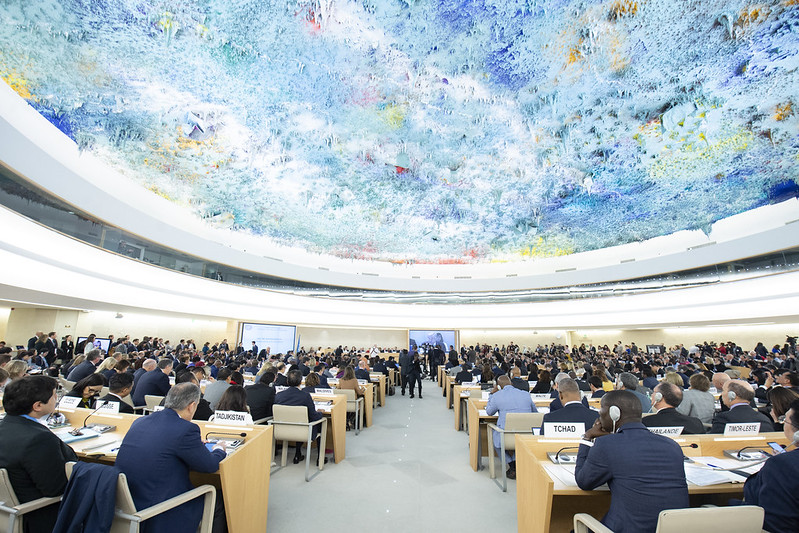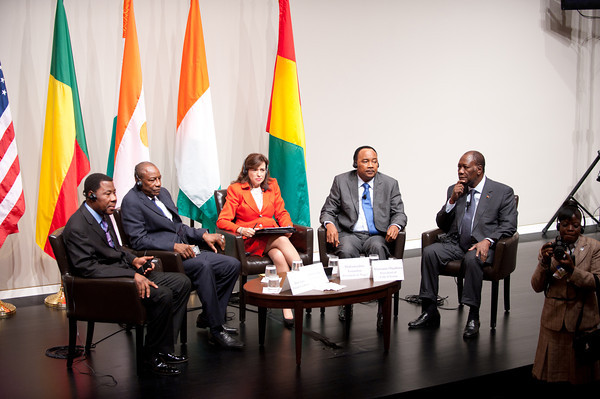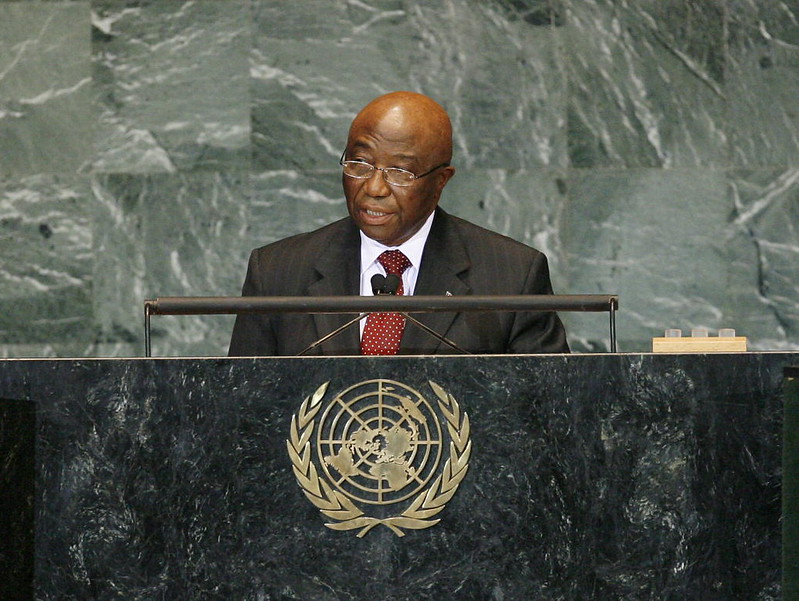Concerns about the credibility of electoral processes undermine the legitimacy of democratic governments and heighten the risk of coups, fostering citizen sympathy for military juntas, write Olajumoke Ayandele and Afolabi Adekaiyaoja.
Amidst the numerous attempted and successful coups that unfolded across Africa in 2023, three incidents stand out due to their proximity to the recent elections held in their respective countries. In August 2023, merely four days after winning a controversial election, Gabon’s president was removed from power by a group of military officers following protests by opposition groups dissatisfied with the electoral process. Subsequently, in November, several months after the general elections held in June, dissident military forces attempted to take over key government locations in Freetown, the capital of Sierra Leone. In December, following Guinea Bissau’s parliamentary elections in June, a confrontation erupted between special forces of the presidential guard and units of the National Guard under the control of the opposition-dominated parliament.
These events underscore the increasing significance of the electoral process as a safeguard against Africa’s democratic backsliding. Elections, more than any other governance process, provide citizens with the chance to be directly involved in shaping state-society relations. Consequently, credible electoral processes enhance the legitimacy of political institutions and improve trust in elected representatives.
Yet, unconstitutional transfers of power on the continent have been executed in four different ways, including:
- Constitutional amendments that extend the length of presidential terms of office
- Constitutional changes that increase the number of terms a person may hold presidential office
- Changes made to reset the presidential term clock for the incumbent president, where incumbents who have reached their absolute term limits can argue that a new or revised constitution allows them to start with fresh mandates unrestricted by previous constitutional limits, and finally
- Term limits being removed altogether
The manipulation of term limits has consequences on the electoral process and outcome. Between 1 January 2020 and 18 February 2024, The Armed Conflict Location and Event Data Project (ACLED) recorded more than 2,000 demonstrations related to electoral processes and elections in Africa. West Africa, which has experienced the highest number of successful and attempted coup attempts since 2020, accounted for nearly 40 per cent of these electoral-related demonstration events during the same period. In 2023 alone, ACLED recorded over 200 demonstrations in the region, marking a 51 per cent increase from the 136 demonstrations recorded in 2022.
While the majority of demonstrations associated with the electoral process have been non-violent (see figure below), recent findings from the 2023 Afrobarometer report reveal concerning trends. Only 43 per cent of adults surveyed responded that militaries should never intervene in politics, and a slim majority (53 per cent) would tolerate military intervention if leaders abuse power. This rate is slightly higher among those aged 18-35, reaching 56 per cent, posing significant concerns for democratic proponents in light of the recent surge in military coups.
The sudden action by Senegal’s president, Macky Sall, to postpone the country’s February 2024 presidential election by 10 months is thus of concern. Although a constitutional court has reversed President Sall’s decision, the extension of Sall’s presidency further threatens to undermine the expansion and promotion of democracy and good governance across the continent. Term limits remain crucial for the promotion of democracy and good governance as important safeguard measures to prevent tyranny and guarantee the peaceful political transition from one elected president to the next. Unfortunately, incumbents’ increasing abuse of power raises several questions regarding the credibility of African democratic institutions and processes, as well as the commitment of African leaders to comply with its protocols in demilitarising Africa’s political spaces.
The increased influence of the judiciary in determining electoral outcomes is a major driver of conflicts related to elections. Citizens have expressed concerns that politicians exploit these judicial actions to secure office through the courts. The perception of an outsized influence by the judiciary is often fuelled by concerns that politicians, especially those in ruling parties, can abuse the power of appointing judges to ensure favourable rulings. This leads to more politically heightened environments, especially in elections that are keenly contested, as supporters of an aggrieved party seek to make clear statements against perceived injustice in being removed from power.
Given the concerns about the continent’s democratic backsliding, ensuring electoral processes are above reproach is more important than ever. This will require electoral management bodies to carry out proactive communication processes to address concerns and ensure robust response mechanisms to credibility issues. Such processes helped Liberia in its tight 2023 elections, which saw an opposition candidate defeat a president seeking re-election. Citizens need to be reassured that their votes will count, especially amid growing disillusionment with electoral processes.
Although the number of coups on the continent might give the impression of democratic backsliding, the upcoming 2024 elections for 19 African countries present a chance to consolidate and uphold the continent’s democratic gains. The increased focus on Africa’s 2024 elections will reflect the way citizens are becoming more aware of the role they have in driving their societies forward. This is why upcoming elections must be free, fair, and seen as credible to enable African leaders to govern with the legitimacy needed to actualize their citizens’ aspirations and avert potential coups.
Photo credit: Pexels






